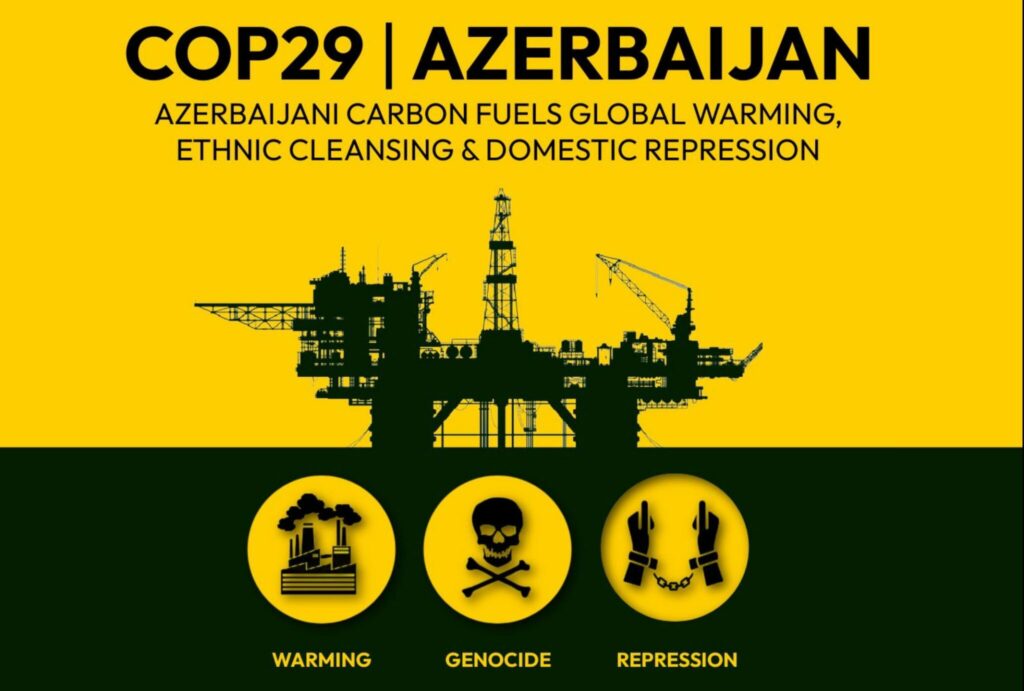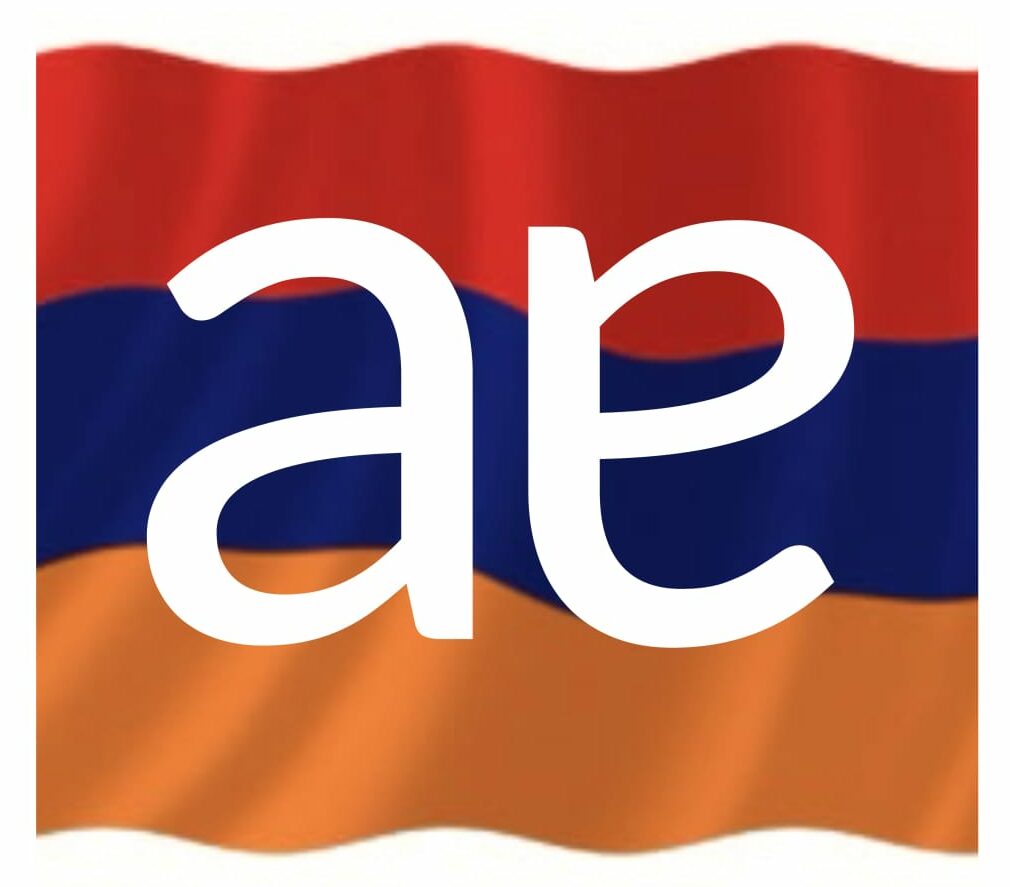
It is no secret that the worldwide network of Armenian National Committee groups plays a key role in the ethnic lobbying efforts of the Armenian diaspora, continually facing various provocations, threats and disinformation campaigns orchestrated by Azerbaijan and Turkey. This offensive is driven at both state and official levels, involving the highest echelons of government in these hostile nations. A notable example occurred in May 2020, when the Turkish President, during a speech focused on the COVID-19 pandemic, labelled Armenian and Greek lobbying organisations as “satanic forces”, highlighting a broader context of Turkey’s ongoing struggle against perceived enemies, including ethnic Armenian and Greek lobbies.
A month later, Turkey’s highest consultative body, comprised of the nation’s most influential figures, convened for over five hours to discuss strategies to counteract the actions of the Armenian diaspora. According to then-press spokesperson Fahrettin Altun, President Erdogan asserted that “Turkey will not permit seeds of enmity to be sown through distorted historical narratives”.
The hostility towards the Armenian National Committee network has a history spanning over a century, manifesting in oscillating intensities based on the provocations prepared against the Armenian state. The first half of 2020 marked a significant period of heightened tensions, culminating in the 44-day war, and the ensuing narrative indicates that hostile forces, following the occupation of Artsakh, are actively seeking to dismantle the security framework of the Republic of Armenia.
American political scientist Samuel Huntington notes in his work, “Who Are We?” that “the relationships and cooperation between homeland governments and the diaspora are central phenomena of contemporary international relations”. Neighbouring countries are acutely aware of the political influence wielded by the Armenian diaspora, and even amidst the historically worst state of homeland-diaspora relations, they remain apprehensive about its activities. Experts frequently employ a synergistic method in diaspora studies, as it is increasingly evident that the diaspora, particularly the Armenian diaspora, operates as a self-governing and self-developing entity, independent of the positions of the Armenian authorities. Consequently, for adversarial forces, the diaspora often presents a more complex and unpredictable factor than the Armenian authorities themselves, particularly under the current government perceived as weak.
In July 2022, Azerbaijan’s president met with the Chair of the European Parliament’s Committee on Foreign Affairs, David McAllister, where he brazenly dismissed diplomatic norms, stating, “To be honest, I was somewhat surprised to learn that you planned to visit Azerbaijan. You might be aware of the reasons… I’ve even forgotten the total number of anti-Azerbaijani resolutions passed by the European Parliament at various times, perhaps more than ten… There is a certain influence from the Armenian lobbying group.”
Turning our attention to contemporary Azerbaijani provocations against the Armenian National Committee network, we note that these have intensified particularly as the global Armenian advocacy network works to expose Azerbaijan’s efforts to turn the upcoming COP 29 into another propaganda spectacle, while simultaneously attempting to absolve itself of war crimes and to obscure human rights violations. It is ironic that Baku, reliant on fossil fuels and plagued by a dismal environmental record, seeks to present itself as a champion of environmentalism.
The initiatives undertaken by the Armenian advocacy network aim to raise awareness regarding the immediate release of captives held in Baku, including political and military leaders from Artsakh, the preservation of cultural heritage in the region, the assertion of the right to return to the people of Artsakh, and the denunciation of the occupation of Armenian sovereign territories. These efforts contribute to heightened international awareness. The outcomes of these activities threaten to derail or at least significantly damage the campaign orchestrated by Azerbaijan’s state propaganda machinery, which seeks to rebrand Azerbaijan as a responsible state, despite its role in genocide.
One can reasonably anticipate that, thanks to the Armenian National Committee network’s efforts, not only will the true nature of Azerbaijan be publicly acknowledged, but also the number of human rights and environmental organisations, alongside political figures—like Paris Mayor Anne Hidalgo, who announced her intention to boycott COP 29—will increase. Heightened awareness campaigns could result in public inquiries that embarrass Baku during the conference.
Given that COP 29 is an event hosted under the auspices of the UN, it is unrealistic to expect a complete boycott from numerous states. More realistic expectations centre on several countries refraining from participation at a high level, notably without the attendance of heads of state or key ministers.
It is already clear that this 29th COP will differ significantly from any previous conference of the UN Framework Convention on Climate Change.
As with any failure or challenge, the hostile state propaganda machinery has once again sought to pinpoint the Armenian diaspora’s involvement and has launched yet another campaign of lies and misinformation, particularly in Europe and the United States.
In the US, this manifests in a failed attempt to initiate a fictitious criminal case against the Armenian National Committee, aimed at extorting $5 million. In Europe, the Azerbaijani propaganda machine has been actively circulating and promoting a bilingual film that disparages the activities of the Armenian National Committee office in Europe and tarnishes the reputation of its president, Kaspar Karampetian, attributing absurd accusations to him. However, despite the absurdity of such productions, these films and other propaganda materials aim to create obstacles for the operations of Armenian National Committes.
In the past ten days, several state-funded Azerbaijani media outlets have conducted an active smear campaign against the Armenian advocacy system, distorting the efforts made in anticipation of the conference. The Azerbaijani state propaganda agency “Caliber,” for instance, has produced a substantial article and film criticising the work of the Armenian advocacy committee in the United States.
On 3 October 2024, the Armenian news agency “Armenpress” published an article titled “The Armenian Advocacy Office Raises Awareness Among European Leaders Regarding Environmental and Human Rights Issues in Azerbaijan,” at 10:09 AM Yerevan time. Merely one hour later, at 11:11 AM, the Azerbaijani outlet “Minval” published an article stating, “It has been proven that the official participation of Armenia in the defamation campaign ahead of COP29.” Here, Azerbaijani propagandists referenced the Armenpress article, stating, “Ahead of COP29, the Armenian lobby continues its ‘black PR’ campaign against Azerbaijan. Initiated by the European office of the Armenian National Committee, members of the European Parliament, along with more than eight hundred international organisations, universities, and academic circles will be informed about the issues facing Azerbaijan regarding human rights and the environment.” This article is also based on falsehoods. Within the Armenian National Committee network, there is no longer any expectation that the Armenian authorities will serve our political priorities, particularly in light of the fact that they have neither confirmed nor denied their participation in this Azerbaijani-orchestrated environmental spectacle. The publication of such an article by the state agency “Armenpress” is insufficient to claim that the Armenian authorities are engaged in efforts to raise international awareness about Azerbaijani issues ahead of COP 29.
Thus, it is evident that the Azerbaijani propaganda machine is conducting a dirty smear campaign against the global Armenian National Committee network, attempting to constrain its operational space. Nevertheless, in their fight against the Armenian National Committee network — an essential player in the political activism of the diaspora—the Azerbaijani and Turkish forces must recognise that, unlike paid lobbying structures to pursue their interests in other countries, the Armenian National Committee network engages in classic ethnic community lobbying. This form of advocacy is significantly more acceptable to states than succumbing to the demands of hired lobbyists. The reason is clear: in the case of ethnic community lobbying, states are dealing with their citizens, addressing their national demands and presenting them to their representatives through democratic means. It is therefore not surprising that, despite the considerable financial resources employed, the Azerbaijani provocations against the Armenian National Committee network have yielded no tangible results. It is also no coincidence that, as of now, in the primary lobbying targets in Europe and the United States—the European Parliament and the two chambers of the US Congress—the Azerbaijani lobbying effort has been fundamentally dismantled and is unable to manipulate the political stances of these institutions. A similar situation exists in the parliaments of Canada and France. Certainly, due to objective reasons, the executive branches of the European Union and certain states exhibit political behaviours inconsistent with those of legislative bodies, but that is a matter for another discussion.
Main source: horizonweekly.ca

